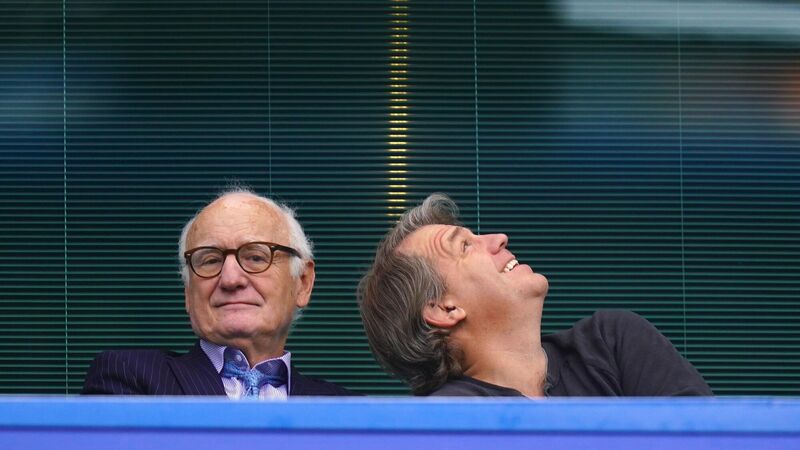American Pie: Why US powerbrokers are so hungry for the Premier League

Chelsea chairman Bruce Buck (left) and prospective owner Todd Boehly in the stands during the Premier League match at Stamford Bridge.
The announcement that the contest to buy Chelsea Football Club has been won by a bidding group led by a US financier, Todd Boehly, offers an incredible insight into the commercial power of modern sport.
The money at issue is a staggering £4.25bn; this figure includes purchase of the club and commitment to invest in the ground at Stamford Bridge in West London.








